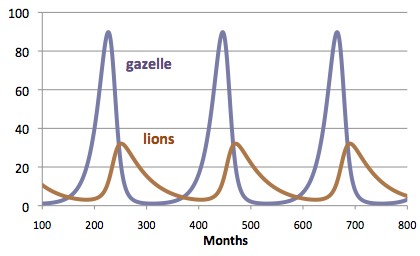In a news item today one can read that 7 of 10 of the wild boar found in dutch woods is shot annually. That seems like a high number, and hardly sustainable. But what if it was? What if our idea of hunting is wrong, that it is not trying to chance on an unlucky animal and shooting it (a moronic practice in our age) and eating the ‘spoils’. What if hunting has become a dead certain activity where you basically just go out and get a boar (with a gun that really is just a cruel and messy way to slaughter an animal). What if hunting is more akin to the ‘canned hunt’ like we see in Africa?

We know that in some regions of the world it makes no sense to haul in beef from Argentinia if there’s moose all over the place, so hunting can be sensible, but in Holland we have no shortage of meat ! It is one thing to pretend you are brave hunter with your green jacket, but it would be another if you use our nature reserves to kill a protected animal (due to culling laws) and enjoy its meat where this clearly is not the intention we had with nature reserves.

Culling boar can cause the population to spike requiring one to cull them
The line that you can cross is to shoot so many animals that here is so much food that the remaining animals will multiply until there are to many, which you then shoot. So instead of allowing a natural population density to develop you disturb it causing wild fluctuations. Predator-prey models can quickly tell you that this is easily achieved. Apply it to wild boar population, and you can ‘harvest’ boars without anyone thinking you are doing anything but taking care of them. We read that ‘there’s a lot of boar this year due to there bing a lot of acorns’, but maybe those acorns are there because we shot the boars that ate them last year! So the question becomes : Are we farming wild boar on public land without paying the public?

We can now even buy wild boar ham and pate in the supermarket, so there is clearly an industrious side to this ‘hobby’. We have not seen the effects of consumption of this meat, maybe it contains hormones and other substances that influence our behaviour in ways we don’t know (as it is not ham from a totally dominated an abused industrial pig). If hunting takes place on such a scale that the meat ends up like any other kind in the supermarket, then we have a case of extreme organic farming with cruel and unusual slaughter methods. Better just leave those boar alone and take the money out of the hunt.
The natural enemy of wild boar is hunger so culls should be stopped
Not being a killjoy one can also imagine ‘no-huntharvest areas’ next to extended ‘hunt harvest areas’, increasing our nature reserves, where boars are caught and slaughter most ‘humanely’. A shooting range will be offered to the ‘hunters’ to let off steam. Hunting with a gun on a boar really is for cruel childish men.
When you think about it, big game hunting makes no sense at all. Big game, an cool sounding name for lions, tigers and other top predators is not necessary for security. This is because these animals have better options for food than humans. So in the wild these animals will rarely attack humans. Wild animals are hunted to extinciton by spoiled westeners. Poachers are also hunted in some countries, by snipers, as they should be when they threaten an entire species. You can not bring back the Dodo, or the Lion or the Elephant if the last one is shot.
The problem with our economy is that it does not care about things that do not exist, so once a resource is lost, it is never thought about again. We need an economy that keeps track of reserves and introduces a prohibitive cost when a resource is threatened with depletion
It is typical that local communities and even poachers themselves don’t feel good about what they do. Yet the key to wildlife conservation is taking away the domination of economic factors, and this is best done by using renewable energy as a new basis for wealth creation. Renewables that can also be used to revive wild populations.